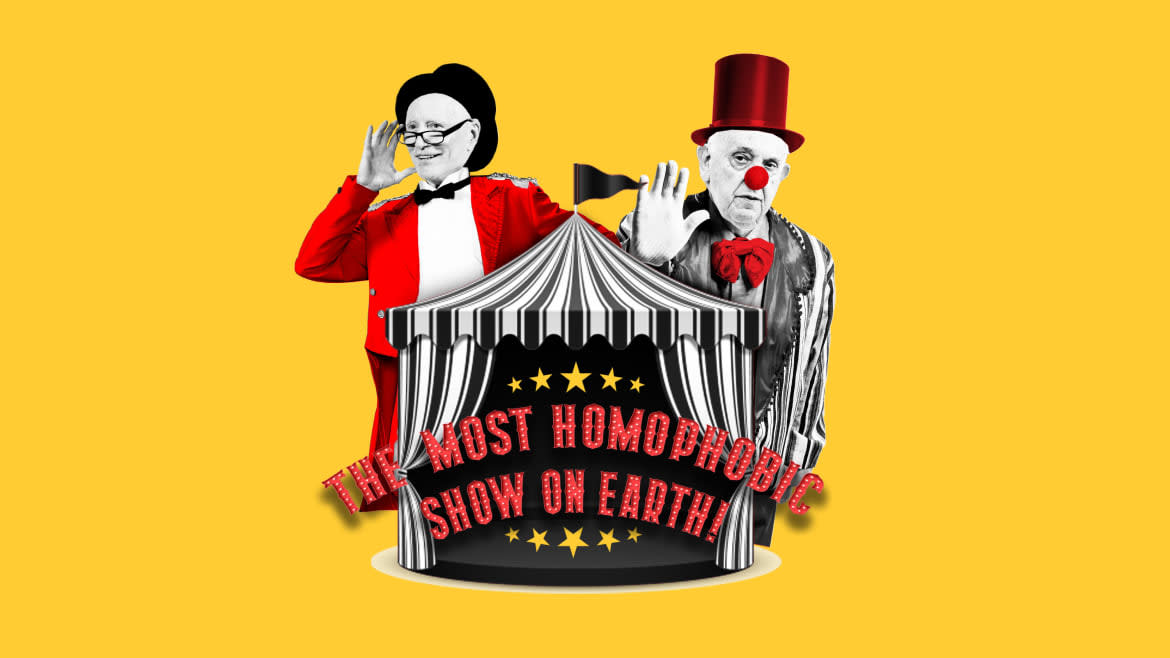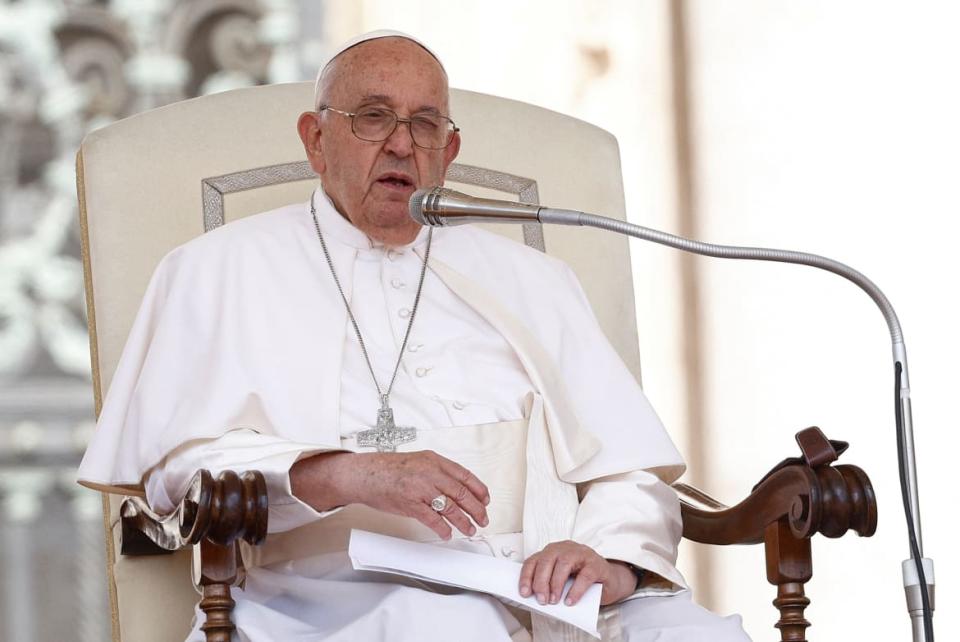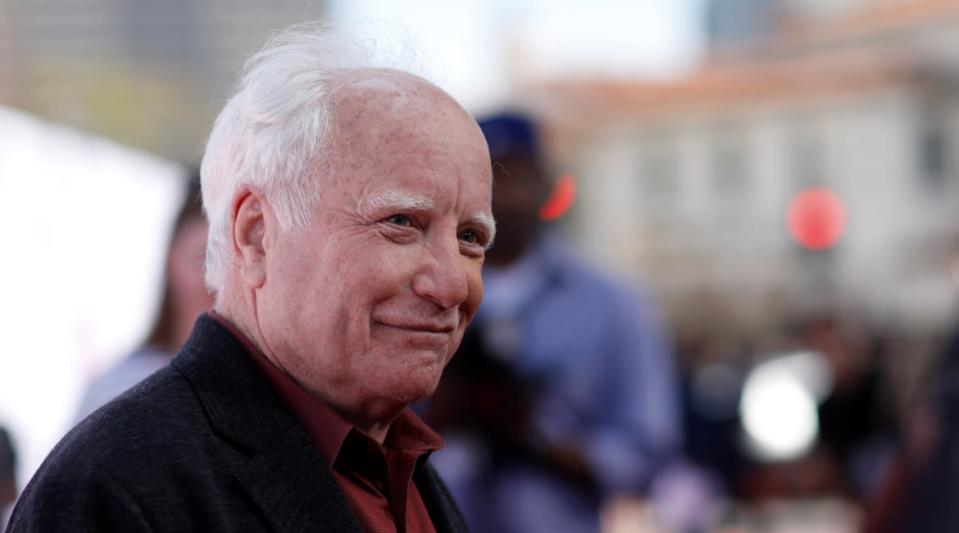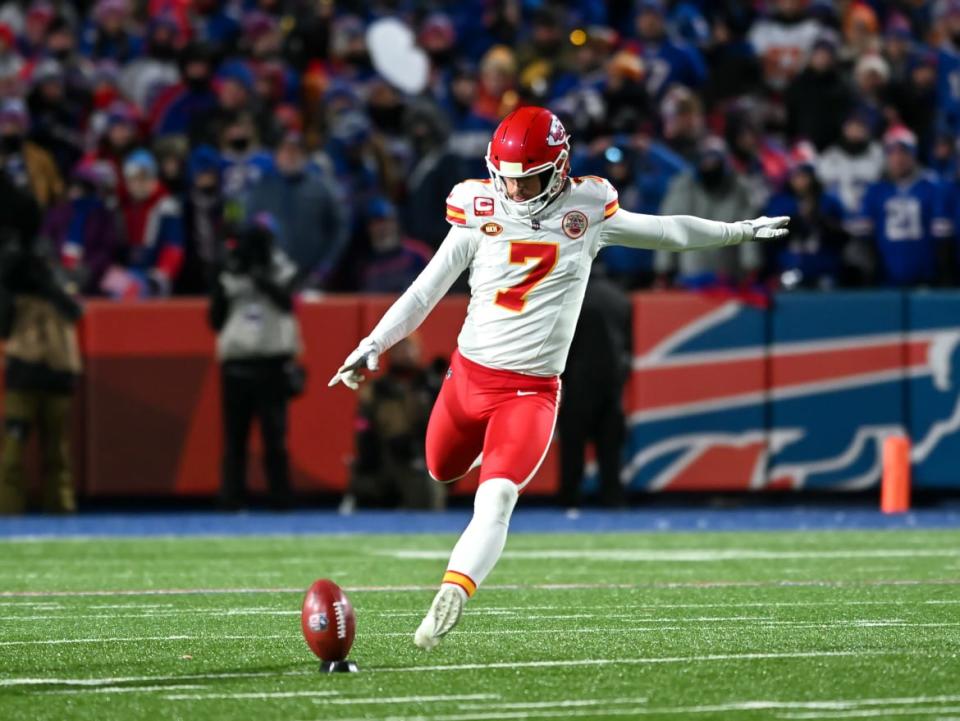Opinion: Pope Francis and Richard Dreyfuss Join a Loud, Homophobic Circus

Frociaggine. Like many things, it sounds better in Italian. But its lilting construction conceals an ugly Anglicized meaning: “Faggotness” or “faggotry.”
Pope Francis said the word-that-is-not-a-ridiculous-new-Starbucks-drink during a discussion on reaffirming what has been politely reported as a “ban on allowing gay men to enter seminaries and be ordained priests.”
How that should really read is “allowing out-gay men to enter seminaries and be ordained priests,” because—and this is not a newsflash for Pope Francis, his bishops, or the Catholic Church—gay men have been entering seminaries and being ordained priests for an extremely long time. The institutionalized homophobia of the Catholic Church just means, pointlessly and cruelly, that they have to be closeted.
Pope Francis Apologizes After Being Accused of Using Homophobic Slur
Francis’ utterance of the F-word alludes to precisely this: Francis reportedly opposed the idea of gay priests being open about who they are, saying there was already too much frociaggine in seminaries. But his use of the word shows one important thing: He knows it goes on. The church knows. Everyone knows. So why the continued charade? (And how can the Catholic Church judge anyone or anything after being such a complicit, sheltering house of abuse for so long?)
The Pope’s insult—for which a Vatican spokesperson later issued a just as tellingly worded apology—is part of a tide of freely spoken homophobia in public discourse, the linguistic manifestation of a conservative-powered movement to undermine hard-fought-for LGBTQ equality and stigmatize queer people, particularly the trans community.
At the weekend, at the Cabot Performing Arts Center in Beverly, Massachusetts, the Academy Award-winning actor Richard Dreyfuss reportedly went off on a misogynistic, homophobic, transphobic rant, instead of talking—as he had been booked to do—about the making of Jaws. (Playing marine biologist Matt Hooper, Dreyfuss is the last living member of the original trio—Robert Shaw died in 1978 and Roy Scheider in 2008—who vanquished the serial killer shark.)
Kansas City Chiefs’ kicker Harrison Butker recently attacked “dangerous gender ideologies” and the “tyranny of diversity, equity and inclusion.” Pride Month was “a deadly sin,” he added, suggesting that female graduates “embrace one of the most important titles of all: homemaker.” Later, Butker used his Catholic faith and “freedom of religion” as the shield for his views, and claimed to be a victim of “a shocking level of hate.” Was he threatened, or does “hate” here mean people volubly registering their objections to his many prejudices? His “hate” started it.
This seeping of anti-LGBTQ poison into general discourse has continued with Lauren Boebert making a “chest-feeding” jibe at Pete Buttigieg. Valentina Gomez, running in the G.O.P. primary for secretary of state in Missouri, is running an “online trolling campaign, rife with homophobia and attacks against transgender people,” as the New York Times reports. Gomez’s catchphrase: “Don’t be weak and gay.”
If Pride month, starting June 1, can be a focus for anything besides an interminable amount of rainbow-colored merchandizing, it should be an acknowledgment of how perilous the terrain of LGBTQ rights currently is. Open expressions of bigotry—proudly spouted by leaders like Donald Trump and Ron DeSantis—are mirrored in attacks on LGBTQ equality in law. The ACLU is presently tracking the progress of 515 anti-LGBTQ bills in state legislatures across America. Campaigners fear a conservative justice-dominated Supreme Court could have torpedoing marriage equality in its sights.
With such threats to LGBTQ rights, it isn’t surprising that a corresponding disrespect and ugliness in language has flowed into the mainstream. And with degradations in both language and policy-making comes a general acceptance or acquiescence to a more pervasive anti-LGBTQ hostility. Queer people, or people deemed to be queer by those inclined to hate-on-sight, are all too used to hearing the F-word and much worse as they go about their business; sometimes it is accompanied by fists, threats, and worse.

Pope Francis attends the weekly general audience, in Saint Peter’s Square at the Vatican May 29, 2024.
Whatever else, Francis’ use of frociaggine spoke its own unintended truth—and in so doing, highlighted the futility of the church’s homophobia. If there is a lot of gay sex, or gay men, or just endless, juicy intrigues happening in Catholic seminaries—hey, maybe all three!—what does Pope Francis imagine frociaggine to encompass? If the Pope and the church know all about whatever is going on under its umbrella, why does it insist on its practitioners, its priests, being in the closet?
Who and what is this collective self-deception for? What is this futile pantomime around frociaggine—hopefully this word can be reclaimed, as the F-word was once reclaimed in English—all about? Why would any gay priest sign up to serving in a church that sees him in such ugly, reductive terms, unless one’s faith trumps all (even self-respect), or maybe it’s the addling effects of all those bells and smells? Don’t gay priests themselves, and their seniors, including Francis, think they might be better priests and happier humans if they were allowed to simply be themselves?
Naturally, as soon as the Pope’s words became news, the Vatican played a pathetic, linguistically revealing game of “clean-up on Aisle 5,” joining the ranks of those who say something awful, i.e. what they really think—and then try to retract or soft-pedal when it is replayed as banner headlines.
“The Pope never intended to offend or express himself in homophobic terms,” a Vatican spokesperson said, “and he apologizes to those who felt offended by the use of the term.”
What BS—or cazzata, if you prefer. Frociaggine is a very specific word, meant very specifically in the conversation the Pope was having. He knew what he was saying, and he said it. He just thought he was in the kind of company who would appreciate the language and sentiment.
A brilliant advertisement by Manhattan Mini Storage around the time of the marriage equality debate proclaimed: “If you don’t like gay marriage, don’t get gay-married.” The same principle applies here. If you don’t intend “to offend or express yourself in homophobic terms,” then don’t offend or express yourself in homophobic terms. If you do it, if you say it, then you mean to do it, you mean to say it. No one is making you say homophobic, transphobic garbage; that garbage is within your own brain, issuing forth from your own voicebox, and rolling off your own tongue. Own it.
The real disavowal of personal responsibility, the real non-apology—and again, how familiar it has become as a cover for so many bigots—is in the second part of the Vatican’s phrasing: “He apologizes to those who felt offended by the use of the term.” Here, the Pope’s homophobia becomes not the Pope’s homophobia but the public reading of the same. If you’re apologizing to those who feel offended by something you do or say, it means you’re not owning the thing you have done or said, but placing the onus on those who rightly interpreted the thing as offensive. If you are sorry for what you said, just say sorry. Equivocation reveals something else.
The Vatican defensively pointed out Francis’ progressive stance on gay people as further clean-up. “As he stated on several occasions: ‘In the Church, there is room for everyone. Nobody is useless, nobody is superfluous, there is room for everyone. Just as we are, all of us,’” a Vatican spokesperson said. That hardly elucidates anything. It merely makes the Pope look like a hypocrite, or—if we are being charitable—inconsistent. The question isn’t what the Pope says (his words are in conflict with each other), it’s what he really thinks or believes as he says it.

Richard Dreyfuss poses at the premiere for the movie 'Book Club' in Los Angeles, California, U.S., May 6, 2018.
There has been no apology from Richard Dreyfuss about his words at the Cabot theater; in a sense this is perversely admirable, because it implies that he means what he says, and stands by it.
Instead, the theater issued an apology, stating: “We are aware of, and share serious concerns, following the recent event with Richard Dreyfuss prior to a screening of the film Jaws at The Cabot. The views expressed by Mr. Dreyfuss do not reflect the values of inclusivity and respect that we uphold as an organization. We deeply regret the distress that this has caused to many of our patrons. We regret that an event that was meant to be a conversation to celebrate an iconic movie instead became a platform for political views.
“We take full responsibility for the oversight in not anticipating the direction of the conversation and for the discomfort it caused to many patrons. We are in active dialogue with our patrons about their experience and are committed to learning from this event how to better enact our mission of entertaining, educating, and inspiring our community.”
Rather like the Vatican spokesperson playing clean-up, this also seems a little absurd, if well-intentioned. It is not up to the theater to post-police Dreyfuss. It cannot answer for his words. The moderator that night could and should have pushed back harder—that is its only lesson to learn. The rest is waffle. Again, like the Manhattan Mini Storage ad: if you don’t want Richard Dreyfuss to spew prejudiced drivel on stage, don’t let Richard Dreyfuss spew prejudiced drivel on stage. It’s all too late to beat your chests days later. And his noxious beliefs are his, not yours.
Those who don’t like minorities feel more emboldened to say so because the right-wing tide is moving in their direction. As soon as they are challenged, they protest that they are merely exercising their faith-based or other freedoms to say it.

Kansas City Chiefs place kicker Harrison Butker (7) in motion for a kickoff in the first half of a 2024 AFC divisional round game against the Buffalo Bills at Highmark Stadium.
Like Dreyfuss (at the time of writing), Harrison Butker is also not apologizing. “If it wasn’t clear that the timeless Catholic values are hated by many, it is now,” Butker said after people objected to him belittling women and queer people. “As to be expected, the more I’ve talked about what I value most—which is my Catholic faith—the more polarizing I’ve become. It’s a decision I’ve consciously made and one I do not regret at all.”
“As the days went on, even those who disagreed with my viewpoints shared their support for my freedom of religion,” Butker added.
Why is his and others’ “freedom of religion” an all-purpose, acceptable excuse for demonizing people and patrolling their behavior? Would it not be possible for Butker to practice his “freedom of religion” privately, or at a place of worship, without trashing in public other people whose sexuality, gender, or whatever else, he finds objectionable? Can he just not hate who he wants to hate in the privacy of his own mind and home? Did God mean for Butker to say out loud his prejudices about those different to him? Is that what his God stands for?
Note the martyr-ish tone too, the wounded note-to-self that Butker has become “polarizing,” and that this is about his faith. As with so many of these judgmental loudmouths—challenge them, disagree with them, and they suddenly assume the prone position of cowering victim. Today, the bigoted bully has become very adept at behaving meekly persecuted as soon as anyone answers them back. This positional switcheroo reveals their own panic at the progress minorities have made, and how shaky and questionable the moral ground that they stand on actually is.
It would be pointless to expect Pope Francis, Richard Dreyfuss, Harrison Butker, Lauren Boebert, Valentina Gomez, and so many others—in public life or not—to stop using anti-LGBTQ language, or stoking anti-LGBTQ feeling for political and cultural clout. More homophobia and transphobia will be expressed, with more absurd victimhood invoked by the bully if anyone dares question it. Do these people care about, or ever consider, the constellations of prejudice, inequality, and violence their words and beliefs exist within? Do they feel even tinges of shame and embarrassment as they say what they say? Likely not. That they now feel so free to express their bigotry, to abuse LGBTQ people so openly, points to an alarming emboldening of the forces of regression and repression that underpin such views.
As for frociaggine, which sounds so fun and frothy even if it is not, I’m sure Pope Francis—who so enjoys saying it—would welcome seeing it emblazoned on as many T-shirts as possible during next month’s Pride marches.
Get the Daily Beast's biggest scoops and scandals delivered right to your inbox. Sign up now.
Stay informed and gain unlimited access to the Daily Beast's unmatched reporting. Subscribe now.

 Yahoo News
Yahoo News 
